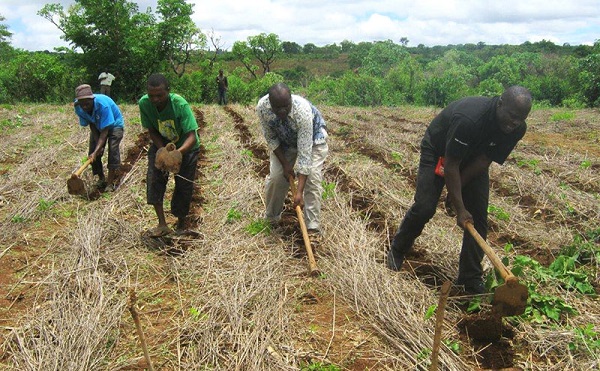MEXICO CITY (CIMMYT) – Traditional farming systems in Africa must be updated for today’s climate and market challenges, according to a new report by the University of Queensland.

The Sustainable Intensification of Maize-Legume Systems for Food Security in Eastern and Southern Africa (SIMLESA) is an international research-for-development project working directly with farmers to solve some of the challenges they face.
For example, the project has greatly improved food production in Mozambique since 2010. It is also promoting rotational cropping systems with legumes in Tanzania to improve soil fertility as well as dietary diversity, and in Malawi, rainfall erosion has been reduced by 80 percent as farmers leave plant residues on fields to improve stability.
“The exact details of best practice change everywhere you go in Africa,” said Caspar Roxburgh, a research officer at the University of Queensland who works with SIMLESA. “A lot of this research just hasn’t been done yet in Africa.”
SIMLESA seeks to have an open dialogue between farmers and scientists to identify what works best in individual areas and define best practices for the region.
“We find out who’s doing the best, learn from them, and then we do the science to back it all up,” explained Roxburgh.
Over the past seven years, SIMLESA has helped more than 200,000 farmers adopt sustainable technologies and practices, improving yields and income.
SIMLESA is funded by the Australian Centre for International Agricultural Research (ACIAR) and implemented by the International Maize and Wheat Improvement Center (CIMMYT), the University of Queensland along with the governments of Ethiopia, Kenya, Tanzania, Malawi and Mozambique.
Read more about how SIMLESA is changing how food is grown in Africa here.

 Innovations
Innovations 
